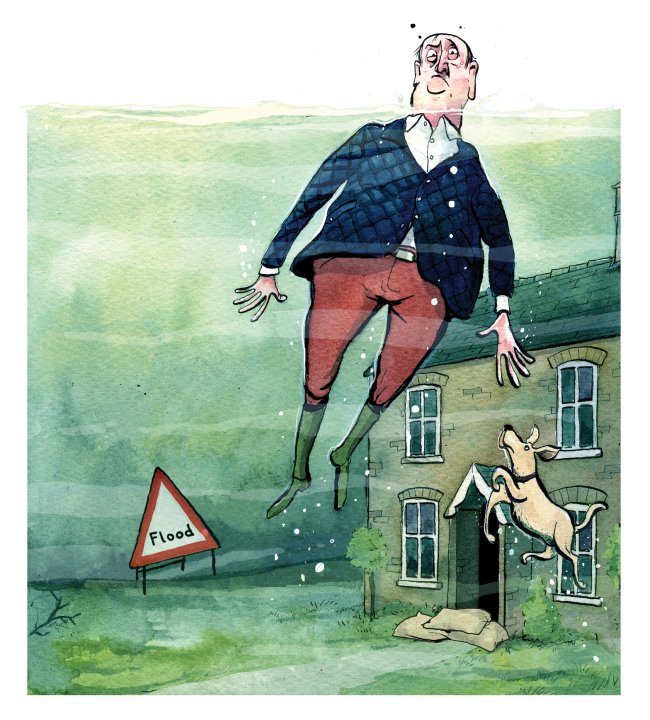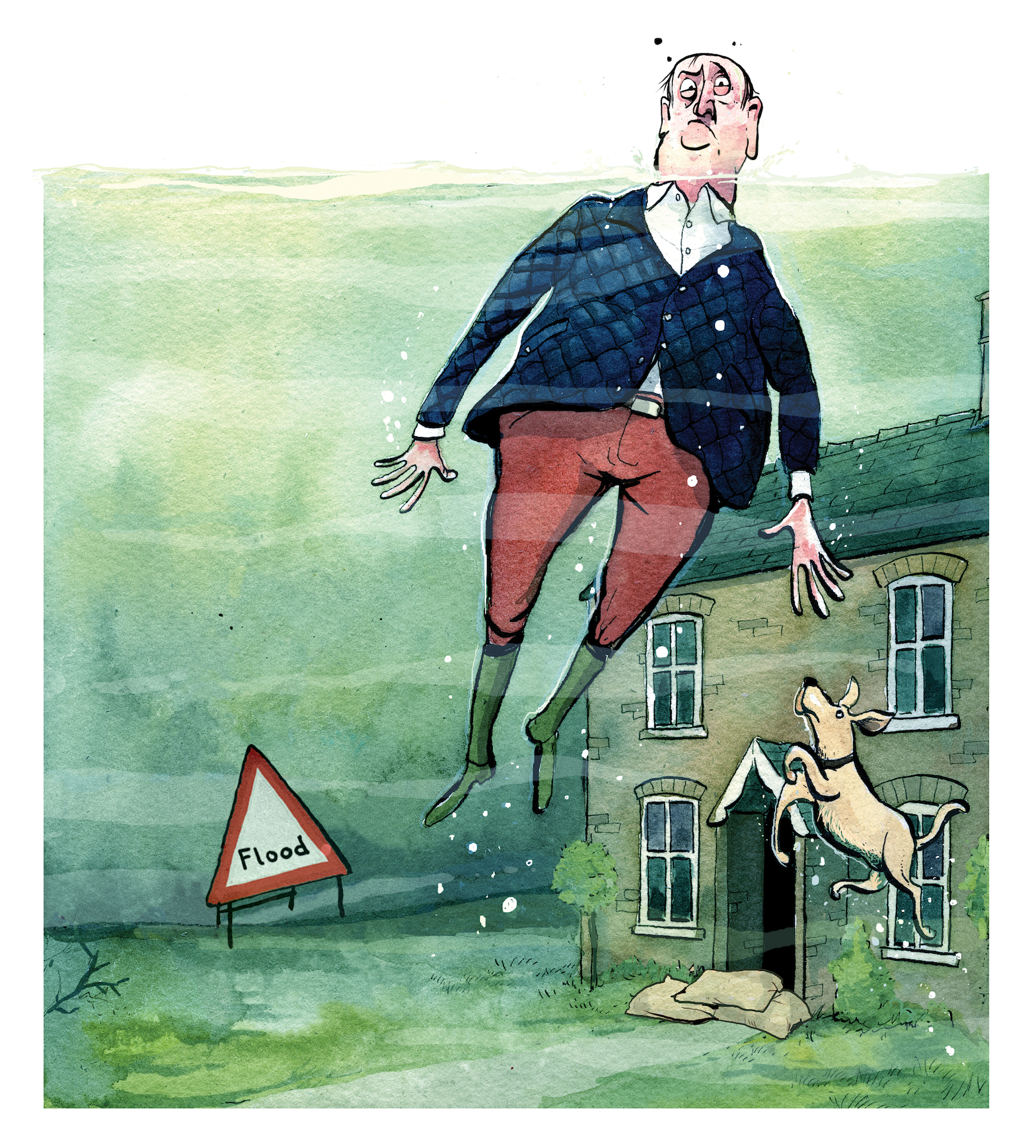Why does every government department and agency seem to feel it hasn’t done its job unless it has expressed some hysterical reaction to the threat of climate change?
Launching the Environment Agency’s latest report on its plans to prepare for possible changes in England’s climate over the next century, its chair Emma Howard Boyd said: ‘Some 200 people died in this summer’s flooding in Germany. That will happen in this country sooner or later, however high we build our flood defences, unless we also make the places where we live, work and travel resilient to the effects of the more violent weather the climate emergency is bringing. It is adapt or die.’
The words ‘adapt or die’ were picked out as the headline for the accompanying press release and, predictably enough, found their way into much of the reporting on the issue. The agency’s message seems quite clear: we’re going to have to do something pretty drastic or else we are all going to perish.
There is an almost laughable disconnect between this sort of language and the actual contents of the report
Yet there is an almost laughable disconnect between this sort of language and the actual contents of the report. You have to read some way through, for example, to learn that the agency has been able to detect ‘little evidence yet on change in extreme rainfall’.
Indeed, as I wrote here recently, two of the three metrics used by the Met Office to measure extreme rainfall in Britain show no increasing trend and the third, which shows a modest rise, is influenced by changing patterns in the distribution of rain gauges. As for the possibility of Britain being struck by ever more ‘violent’ weather, the report doesn’t even mention the possibility of being lashed by every-stronger storms – which is not all that surprising, given that current evidence, as revealed in the latest IPCC report, shows a downwards trend in the prevalence of damaging storms at Britain’s latitude over the past few decades.
As for the 200 deaths from floods in Germany in July, a large factor in that toll was the inadequacy of flood warning systems, and of residents and local authorities’ failure to take seriously the warnings which were issued. Flood warnings are something which the Environment Agency does rather well – and which its predecessor bodies have been doing well ever since the North Sea floods of 1953, when 300 people were killed in East Anglia and the Thames Estuary. It is remarkable how few people have died in flooding incidents in Britain since that disaster. So why frighten people into thinking we don’t have an effective flood warning system?
Here is a taste of how the Environment Agency is actually preparing for possible climate change, shorn of the hysterical language with which the report was presented to the media. The Agency has prepared for a worst-case scenario in which summer rainfall by the 2080s falls by 15 per cent (which would be a reversal of current trends, as British summers over the past two decades have defied climate models by becoming a little wetter).
The report identifies a problem in the form of ‘insufficient water for boats’, going on to suggest that we might suffer ‘increased frequency, severity and duration of events where boaters (either commercial of residential) are unable to navigate due to insufficient depth of water or insufficient upstream reserves to enable lock operation.’
No doubt it is annoying when your pleasure barge is stranded for a few days, but it does not quite spell death. As for the effect on agriculture, the report raises a scenario where an ‘increase in temperature and changes in rainfall patterns lead to new crops being grown in new geographical areas.’ Not quite starvation, then.
As for the threat of sea level rise – which is the one genuine concern we should have in Britain – the Environment Agency is planning on the assumption of a 1.2 metre rise in sea levels by the 2080s. However, its actual projection is for a 45 cm rise by that time, in the event of global temperatures rising by 2 Celsius above 19th century levels and 78 cm if temperatures rise by 4 Celsius. These are perfectly manageable changes – at least over that timeframe – as long as we invest in flood defences. There are, after all, already parts of Britain which remain dry in spite of being up to nine feet below sea level and parts of the Netherlands which manage quite happily in spite of being over 20 feet below sea level.
It is quite right that the Environment Agency prepares for worst-case climate change scenarios – and indeed tells us how it is going to improve flood defences to cope with the climate we already have. But it would do us all a favour if its leader didn’t feel compelled to draw attention to their work through shouty and hysterical statements which are serving merely to feed anxiety in children and other impressionable people.








Comments